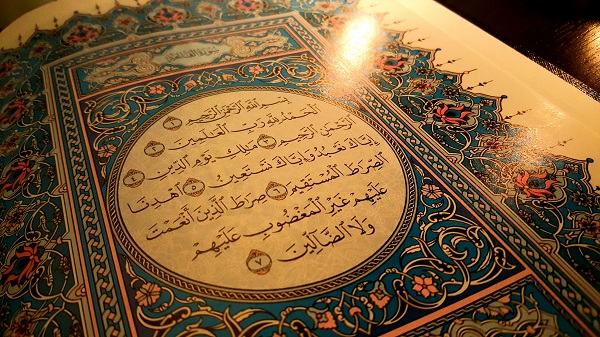Did Prophet Muhammad(ﷺ) Copy the Bible? A Logical and Historical Refutation
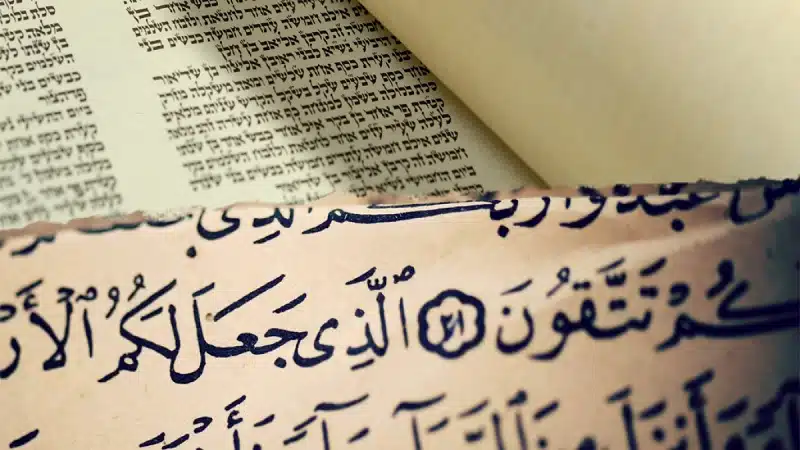
There’s an old and ridiculous fallacy that Muhammad(ﷺ) copied the Bible, a sophism invented in mockery by certain ignorant Arab pagans against the Prophet during his lifetime and which quickly faded among the pagans themselves.
We find it again today in certain “orientalist” writings, disguised under the cloak of scholarly research, reproducing the same old thwarted error of the ancient pagans and striving to spread it among the naïve and uneducated masses, to which the Swiss journalist and historian Roger duPAsquier proposes:
To this day, no one has put forward a defensible explanation as to how an illiterate caravan merchant of the early 7th century could, by his own efforts, have produced a text of such inimitable beauty, with such capacity to arouse emotion, and which contained knowledge and wisdom so far above the prevailing ideas among mankind at the time. Studies carried out in the West that attempt to determine the “sources used by Mohammed”, or to uncover the psychological phenomenon that allowed him to draw on his “subconscious”, have demonstrated only one thing: the anti-Muslim prejudice of their authors.
Roger DuPasquier, Unveiling Islam , 1992, The Islamic Texts Society, Cambridge, p.53.
The response to this allegation will be based on four axes:
- Axis 1: Logical refutation of the detractors’ main argument, presenting the cognitive bias it represents.
- Axis 2: Analysis of the contents of the Bible and the Quran indicates the impossibility of a copy:
- The Quran corrects the Bible.
- The Quran brings stories and details that exist nowhere in the Bible.
- The Quran is a book of miracles.
- Axis 33: The inability of a man like the Prophet Muhammad(ﷺ) to access the knowledge of the Quran without divine revelation:
- The Prophet Muhammad(ﷺ) was illiterate.
- Mecca was an isolated place, far from Judeo-Christian influence.
- The Bible had not yet been translated into Arabic.
- Prophet Muhammad(ﷺ)’s contact with Christians and Jews was very limited.
- Axis 4: You can’t copy a miracle
- The Quran is a book of miracles with its own proof of veracity.
- The Prophet Muhammad(ﷺ) provided sufficient proof of his prophecies by the grace of Allah.
Similarity does not imply borrowing.
When we analyze the arguments of those who assert that the Quran was copied from the Bible, we find their reasoning follows a specific pattern: they point out the similarities between the two texts, such as the oneness of God, the Prophets, and the angels. From these similarities, they conclude that the Quran must have been copied from the Bible. Thus, the assertion is established, and the only remaining question is how Muhammad (ﷺ) could have managed to copy the Bible.
Aberrant, isn’t it? Yet this fallacious reasoning forms the basis of those who claim that the Quran was copied from the Bible.
They accept the “single source” theory when it comes to comparing biblical data with ancient literature or traditions. They will happily say that if the biblical account of the flood is similar to accounts in ancient Mesopotamian writings, this does not mean that the Bible is a copy of these books, but that these books probably have a single source, but revert to the borrowing theory when it comes to comparing the Quran with literature or ancient traditions: the double standard.
the similarity between two revelations means that they have the same source
Imagine that in 1500 BC, after Moses (pbuh) received the Torah, the Prophet Noah (pbuh) received certain commandments. So did the Prophet Moses (P) after him. If the followers of the Prophet Noah (P) accuse the Prophet Moses (P) of copying the book of Noah, how will the followers of the Prophet Moses (P) react? We might hear an answer like this:
- The Law comes from the same source (the one and only God),
- Of course, we would expect similar teachings
- Any deviation from the absolute similarities would mean correcting the message that had been corrupted,
- Any other difference would mean an additional law with the new revelation
- New revelations come with proofs and evidence. Otherwise, anyone can try to invent a “revelation” (when it doesn’t come from the same source—God) and mislead many. If there is no proof or evidence, how can we verify its veracity and authenticity, believe in it, and accept it?
This is what we Muslims have been saying all along: Allah sent his last Prophet with clear proof of his Prophethood, the Quran corrects the previous texts, testifies to their truthfulness, and rejects their falsehoods. The similarity between the two revelations thus implies that this revelation comes from God, which is how the people of the book who believed in the message of the Quran reacted:

The Quran does not copy the Bible: it corrects it.
If the Quran were the product of a human mind, or if it had been altered by human hands, it too would be full of errors, just like the Bible. In another article describing the transmission of the New Testament through the study of ancient manuscripts, we have seen how the process of copying affects the content of a book:
- The scribes who copied the New Testament took up all the mistakes made by the scribes who preceded them.
- Scribes often injected errors to correct what they considered mistakes, and today, there are over 200,000 variant readings in the 6,000 manuscripts of the New Testament.
The Quran not only corrects all the errors in the Bible but also makes corrections that could not have been known to any human author because they require knowledge of the invisible and adds details that no man of the Prophet Muhammad(ﷺ)’s time knew.
In his book “La Bible, le Coran et la science” Maurice Bucaille writes :
“(…) In Western countries, Jews, Christians and atheists unanimously agree that Mohammed wrote or had written the Quran in imitation of the Bible. It is argued that Quranic stories repeat biblical ones. This position is as flimsy as saying that Jesus also misled his contemporaries by drawing inspiration from the Old Testament during his preaching: as we have seen, Matthew’s entire Gospel is based on this continuity with the Old Testament. What exegete would think of depriving Jesus of his character as God’s messenger for this very reason? Yet this is how Mohammed is most often judged in the West: he merely copied the Bible. A summary judgment that takes no account of the fact that the Quran and the Bible may give different versions of the same event. They prefer to ignore the fact that the accounts differ. They are declared to be identical, so that scientific knowledge need not intervene. These issues will be developed further in relation to the creation and flood narratives.
(La Bible, le Coran et la science, Seghers, Paris, p. 126).
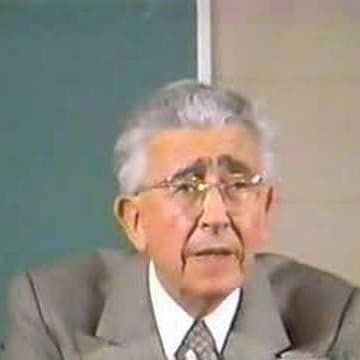
Example of a story: Joseph ( P) in the Quran and the Bible
Let’s take the example of the story of the Prophet Joseph, The Quran tells the story of Jospeh, not only does the Quran tell the story with details that do not exist in the Bible, but it makes corrections that only a 21st-century man versed in Egyptian history will understand the nuance :
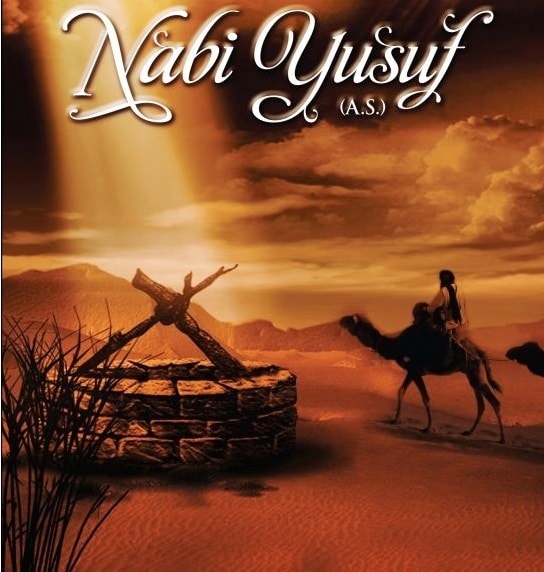
- The Bible refers to the ruler of Egypt at the time of Abraham and Joseph (peace be upon them) as “Pharaoh” (Genesis 12:37). This term was not used until the New Kingdom, which means that the Bible’s use of this term in Genesis is an anachronism. If the charge of “plagiarism” is correct, we should expect the Quran to repeat the Bible’s error in telling the story of Joseph (Sura 12). However, we note that the Arabic word “firaun” is ONLY used to describe the Egyptian king at the time of Moses (peace be upon him), but NEVER at the time of Joseph (peace be upon him).
- In the Bible, Joseph told his brothers his dream (that he saw the sun and the moon and 11 planets bending before him) Genese 37:9 whereas in the Quran Joseph did not tell his brothers because his father Jacobe forbade him to tell them Quran 12:4-5
- In the Bible, Joseph’s mother (Rachel) died when he was a child, so his dream did not come true (the moon in his dream was his mother), whereas the Quran (12.100) states that both his parents were there when he raised them close to him.
- In the Bible ( Gen 37.13 ) it’s Jacob who asks Joseph to go and join his brothers, whereas in the Quran (12.13) it’s his brothers who ask and make an effort to convince their father to let Joseph go with them.
- In the Bible (Gen 37.16), Jospeh follows his brothers to find them and even asks for directions, whereas in the Quran (12.15), they leave together.
- In the Bible (Gen 37.28), Jesus’ brothers took him out of the well and sold him to a passing caravan, whereas the Quran (12.19) states that his brothers left him in the well and that the caravaneers found him in the well when they lowered their bucket.
- In the Bible (Gen 37.33), Jacob believed what his sons told him and mourned Joseph, in the Quran (12.18), Jacob did not believe them.
- In the Bible (Gen 39.13), the wife of Joseph’s new master seized his garment and kept it, whereas in the Quran (12.25), she tore it from behind when Joseph escaped from her.
- In the Bible (Gen 39.16) the master’s wife waited until the master came home, whereas in the Quran (12.25) they found him just outside the door when Joseph escaped from her.
- In the Bible (Gen 39.20), the master decides to put Joseph in prison. In contrast, in the Quran (12.26), he is exonerated following testimony and an investigation into the way his garment was torn.
- The Bible does not tell the story of the other women who cut off their hands at the sight of Joseph and how he was then put in prison (Quran 12.30).
- The Bible doesn’t tell the story of Joseph’s refusal to leave prison until he was completely exonerated and the story of his master’s wife, who recognized that Joseph was guilty (Quran 12.51).
- The Bible (Gen 42.16) states that Joseph imprisoned his brothers for three days and called them spies, whereas in the Quran (12.60), he only forbade them to trade unless they brought back their youngest brother.
- The Bible (gen 42.38) states that Jacob tells his sons that Joseph is dead and that he does not want Benjamin to die, whereas in the Quran (12.87), he tells them that he hopes Allah will bring Benjamin and Joseph back to him.
- …
This list is not exhaustive; in most narrations, the Quran clarifies and corrects errors in the biblical narrative. Allah says:
Other Examples of corrections
Many stories of ancient peoples and Prophets sent to their nations are mentioned in the Quran, some of which already appear in the Bible, however, the Quran often goes against the biblical accounts and corrects many of the misperceptions conveyed by scribes who modified the biblical accounts over time.
The table below gives some examples:
| Bible story | The Quran |
| God rested on the seventh day after creating the earth (Exodus 31.17) | God never tired nor rested Quran 50.38 |
| Nothing is like God Quran 42.11 | Nothing is like God (Quran 42.11) |
| God Forgets (Psalms 13.2) | God never forgets anything Quran 20.52 |
| God Sleeps (Psalms 44.23 and Psalms 35.23) | God never sleeps and needs no sleep (Quran 2.255) |
| La terre existe depuis 6000 ans environ ( Genèse ) | Ne reprend pas l’erreur biblique . |
| The Israelites numbered 600,000 men at the time of the exodus, not including women and children: [Exodus 12:37-38], or 2.5 million, counting one woman and children. | Le coran affirme qu’ils n’etaient pas nombreux Coran26:52-54 |
| The prophet Lot is said to have committed incest with his daughters (Genesis 19, from 17 to 38). | Lot and his family were pure people, and did not commit turpitude Quran 27:56 |
| The Prophet Moses died because he disobeyed God (Deuteronomy 32:48-52) | The Quran honors and defends Moses (Quran 33.69) |
| The prophet Aaron would have asked the Israelites to worship the Calf Exod. 32:2 | Aaron was against this abomination but the Israelites would not listen to him Quran 20:85-94 |
| The earth is flat (Revelation 7:1) | God gave a round shape to the earth because he wraps night around day and day around night, which would be impossible if the earth were flat (Quran 39.5) |
| Abraham’s Father is called Terah ( Genesis 11.26 ) or rather Thara ( Luke 3.34 ). | Abraham’s Father is called Azar Quran 6:74 (Similar to the Greek version Athar ) |
| Abraham’s sacrificial child is Isaac (Genesis 22.2) | The child sacrificed was Ismael Quran 37:99-112 |
| David a tué Goliath (1 Samuel 17:50) ou c’est plutot Elhanan qui le tua (2 Samuel 21:19) | C’est David qui tua Goliath (Coran 2:251) |
| It was Eve who convinced Adam to eat the forbidden fruit (Genesis 3:12-13). | Jesus, the prophet, was always respectful and obedient to his mother (Quran 19.32). |
| Solomon began to worship gods other than God (1 Kings 11-4) | Solomon was never an unbeliever and never turned away from God (Quran 2.102) |
| Jesus would have been disrespectful to his mother ( Woman, what is there between me and you? ) (John 2.4) | Jesus the prophet was always respectful and obedient to his mother (Quran 19.32). |
The Quran tells stories that do not exist in the Bible
Reading the Bible, one would think that Prophets were reserved for the children of Israel. The Quran corrects this vision by specifying that all nations have already received Prophets; it then tells us the story of multiple Prophets sent to Arabia. The Quran also tells the stories of Prophets in a different way from the Bible, with more details:
| Bible story | Prophet Hud (P) was sent to the powerful people of Ad, who lived in Arabia (P) after the flood of Noah. |
| Not in the Bible | The people of Tubaa in Yemen received a prophet. |
| Not in the Bible | Prophet Chuaib(P) was sent to the people of Midian. |
| Not in the Bible | Prophet Chuaib(P) sent to the people of Midian. |
| Not in the Bible | The story of Dhu Lkarnain, the pious man Allah gave great power to. |
| Not in the Bible | The story of Dhu Lkarnain, the pious man Allah gave great power to. |
| Not in the Bible | The story of the wise man Luqman and the advice he gave his son |
| Not in the Bible | The story of the cave dwellers, which happened long after Jesus Christ |
| Not in the Bible | The Story of Dhu Lkarnain, the pious man Allah gave great power to. |
| Not in the Bible | How Mary was exonerated of the crime of fornication: Allah made the Baby Jesus speak (Quran 19.30) |
| Not in the Bible | the story of how Abraham was put in a fire by his people, and the fire did not burn him (Quran 21-The Prophets (Al-Anbiya) 51-73) |
| Not in the Bible | the story of David and Solomon with the sheep (Quran 21-The Prophets (Al-Anbiya) 78-80) |
The Prophet was illiterate in an environment isolated from civilization.
Prophet Muhammad(ﷺ) was illiterate
The Prophet Muhammad(ﷺ) never knew how to read or write; he was never seen reading a book or a page or carrying a quill to write. This is what is attested in the Quran:
His words, “Otherwise, those who deny the truth would have had doubts,” explain why God made him illiterate. He couldn’t read or write so that unbelievers wouldn’t become suspicious and skeptical. They would then have said: He only read this in the old books. Al-Nahhas (d. 949) said: “This is proof of his Prophethood because he did not write or mingle with the People of the Book, so he brought them news from the Prophets and the nations, and suspicion and doubt ceased”.
The Quran goes on to argue against the unbelievers in Mecca, reminding them that the Prophet Muhammad(ﷺ) had remained among them for 40 years without receiving a revelation or bringing a book:
He also says:
The word used by the Quran here is “ummi,” which is the Arabic name for an illiterate person; the same word is used to designate the Arab nation:
or certain Jews of the time who were also illiterate:
In the Prophetic tradition, several passages report that the Prophet was illiterate. When the angel Gabriel came with the first revelation, he said to the Prophet PBUH: read, the Prophet replied: I can not read:
He had several scribes, such as Abu Bakr, Omar, Othman, Ali, Zaïd, and Muawiya, who transcribed the revelations and wrote the treaties as well as his correspondences to kings, tribal chiefs, his employees, his governors, and so on. In the Hudaybiyah treaty, Ali, the Prophet’s cousin, wrote the treaty terms under the Prophet’s orders. There was then a disagreement with the polytheists over the term “Muhammad(ﷺ) messenger of Allah”:
If he, may God’s peace and blessings be upon him, could read, why did he need Ali to show him where to find the word “Muhammad(ﷺ) messenger of Allah”?
Mecca was an isolated place, far from Judeo-Christian influence.
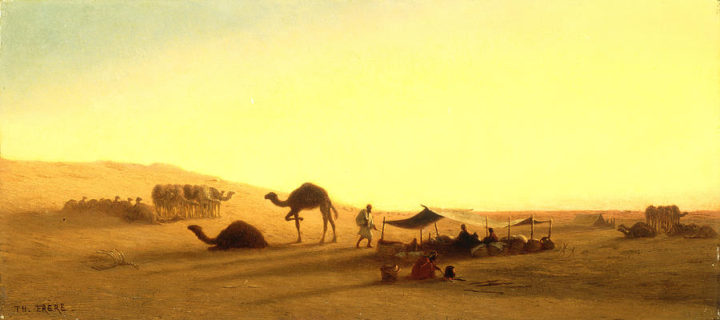
Prophet Muhammad(ﷺ) describes the state of the Arab nation at the time of revelation:
The context of the ancient world was not conducive to education. It has been estimated that at least 90% of the Jewish population of Roman Palestine in the first centuries AD could only write their own names, or could neither write nor read, or that the literacy rate was around 3%..
In the Arabian Peninsula, the Christian presence was limited to three places: among the Al-Hirah tribes in the northeast, near Iraq, the Roman-occupied kingdom of Bani Ghassan in the northwest, and the Abyssinian kingdom of Yemen, far from Mecca. The Jewish presence was mainly ensured by settlements in and around Medina.
Now, with this complete move away from civilization it is interesting to note that the majority of the Prophets’ stories came down during the period when the Prophet PBUH lived in Mecca:
| Adam(P) | | 7: 11~25 Mecca | 15: 26~44 Mecca | 17: 61~ 65 Mecca | 18: 50 Mecca | |20: 115~126 Mecca | 38: 67~88 Mecca |
| Enoch(P) | |19:56~57 Mecca | |
| Nûh(P) | | Surat Noah ( the complete chapter) Mecca | 7: 59~64 Mecca | 10: 71~73 Mecca | 11: 25~49 Mecca | 21:76~77 Mecca | 23: 23~30 Mecca | 26: 105~122 Mecca | 29: 14~15 Mecca | 37: 76~82 Mecca | 54: 9~17 Mecca | 4:163~165 Madina | 6: 83~87 Mecca | 9:70 Madina | 14: 9 Mecca | 17:3 -17:7 Mecca | 38:12~14 Mecca | 40:5~6 Mecca | 42:12 Mecca | 50:12~14 Mecca | 51:46 Mecca | 53:52 Mecca | 57:26 Madina | 66:10 Madina | |
| Hûd(P) | |11:50~60 Mecca | 7:6~27 Mecca | 23:31~41 Mecca | 26:123~140 Mecca | 41:15~16 Mecca.| 46:21~25 Mecca | 51:41~42 Mecca | 53:50~55 Mecca | 54:18~22 Mecca | 69:6~8 Mecca | 89:6~14 Mecca | |
| Saleh(P) | | 7:73~79 Mecca | 11:61~68 Mecca | 15:80~84 Mecca | 17:59 Mecca | 26:141~159 Mecca | 27:45~53 Mecca | 41:17~18 Mecca | 54:23~32 Mecca | 91:15 Mecca | |
| Ibrahîm(P) | |14: 35~40 Mecca | 6:74~83 Mecca | 21:51~70 Mecca | 26:69~83 Mecca | 29:16~27 Mecca | 19:41~48 Mecca | 37:83~98 Mecca | 2:124~141 – 2:258 Madina | 22:26~27 Madina | 16:120~123 Mecca | 53:37 Mecca | |
| Ishmâ’îl(P) | | 14:37 Mecca | 2:127~129 Madina | 37:99~113 Mecca | |
| Ishâq(P) | |37:112~113 Mecca | 11:69~73 Mecca | 15:51~56 Mecca | 51:24~30 Mecca | 19:49 Mecca | |
| Lût(P) | | 7:80~84 Mecca | 11:69~83 Mecca | 15:51~77 Mecca | 26:160~175 Mecca | 27:54~58 Mecca | 29:28~35 Mecca | 37:133~138 Mecca | 51:31~37 Mecca | 54:33~40 Mecca | |
| Shuaib(P) | | 7:85~93 Mecca | 11:84~95 Mecca | 15:78~79 Mecca | 26:176~191 Mecca | |
| Yûsuf(P) Joseph | Surat Yousuf [ The complete chapter] Mecca |
| Ayoub(P) Job | | 6:84 Mecca | 4:163 Madina | [21:83~84] Mecca | 38:41~44 Mecca | |
| Yûnus(P) Jonah | | Surat Yonus [10:98] Mecca | 21:87~88 Mecca | 37:139~148 Mecca | |68:48~50 Mecca | |
| Moses(P) | | 19:51~53 Mecca | 28:1~44 – 28:76~83 Mecca | 20:9~100 Mecca | 27:7~14 Mecca | 17:101~104 Mecca | 7:103~155 – 7:159~174 Mecca | 43:46~56 Mecca | 33:69 Mecca | 26:10~68 Mecca | 79:15~25 Mecca | 41:45 Mecca | | 10:75~93 Mecca | 40:23~54 Mecca | 2:49~103 Madina | 18:60~82 Mecca | |
| Jesus(P) | |3:33~62 Madina | 5:72~77 – 5:110~120 Madina | 19:16~40 Mecca | | 21:90~91 Mecca | 4:156~159 Madina | 61:14 Madina | 57:27 Madina | |
Scriptures were not available in Arabic
The illiteracy of Prophet Muhammad (ﷺ) counters the plagiarism theory. However, even if he could read and write, another issue arises for critics: there was no “Arabic Bible” during his time.
Most specialists agree that the need for an Arabic version of the biblical text was not perceived until after the death of the Prophet of Islam. From that moment on, the majority of the Jews found themselves subjects of an Islamic government. It was also at that time that the controversies between Jews and Muslims surfaced and that the debate between the two religions took root. The Bible was exposed to criticism, and Arabic translations made it possible to reply to that critical examination .
The Christians, too, seeing that the Arabic language was becoming dominant, became interested in translating the Bible into Arabic.
Hanan Kamel Metwali-A History of Jewish-Muslim Relations
The Old Testament was not translated into Arabic until more than a century after the death of the Prophet Muhammad(ﷺ). In the 10th century CE, Saadia Gaon wrote the Tafsir, an Arabic translation of the Torah and certain other biblical books, accompanied by a commentary. These texts were written in Hebrew (Judeo-Arabic) script.
As for the New Testament, the oldest Arabic version of the Bible was that of Hunayn ibn Ishaq in the ninth century, but it has not been preserved. In the case of the Hebrew Bible, it was based on the Septuagint. Part of what appears to be the oldest extant Arabic Bible or New Testament was discovered in the 19th century at the monastery of Saint Catherine. The manuscript, called Codex 151 from Mount Sinai, was created in 867 in Damascus by a man called Bishr Ibn Al Sirri.
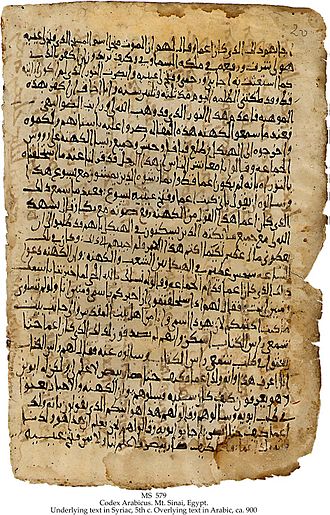
It should also be noted that the first translations of the Bible into Arabic were heavily influenced by the teachings of Islam. The translators often used words that came directly from Islamic worship, such as soubhana Allah (glory to God), alhamdulillah (praise to God), Asshaytan arrajim (stoned Satan), and alhawaryoun (apostles of Jesus, as the Quran calls them).
In search of a teacher of the Prophet Muhammad(ﷺ)
The Qur’ân was revealed over 23 years, so where was Muhammad(ﷺ)(P)’s mysterious, perhaps invisible teacher? How could he hide for so long? Or how could Muhammad(ﷺ), constantly surrounded by companions, make frequent secret visits to this mysterious teacher or teachers for 23 years without even being caught once? Knowing that in many cases, revelation descended on the Prophet Muhammad(ﷺ) in the presence of several people.
We know that Muhammad(ﷺ)(P) was fought, ridiculed, and persecuted for nearly 13 years by his contemporaries. With this magnitude of severe enemies, was it not possible for them to prove to the masses that Muhammad(ﷺ)’s (P) claim of revelation was a pure fabrication? Wasn’t it possible for them to reveal and name the person they claimed to be the human source(s) of his teachings? Even some of his opponents who had made this claim later changed their minds and accused him, instead, of magic or being possessed by evil, etc.
The detractors of Islam are aware of this, but their reasoning is as follows: Since we can’t prove that a person taught the Quran to Muhammad(ﷺ), we’ll look in all the sources to see if Muhammad(ﷺ) had ever met a Christian or a Jew in his life, even if the meeting only lasted 15 minutes, or if that person didn’t even speak Arabic, or if he converted to Islam, we’ll still say that we’ve finally found the mysterious teacher of the Prophet Muhammad(ﷺ).
Here are some examples of so-called “teachers” of the Prophet Muhammad(ﷺ):
The Bahira Monk
The only account of an encounter of the Prophet (P) with a Christian would be at the age of 12; the Prophet(P) is said to have gone with his uncle to Syria; during this journey, a strange story unfolds with a monk who recognized the Prophet Muhammad(ﷺ) After seeing the signs of prophecy on him, he spoke with the Prophet’s uncle and said: “When you people arrived from the road, not a rock or tree was left, except that they prostrated themselves, and they do not prostrate themselves except for a Prophet. And I recognize him by the seal of Prophethood below his shoulder blade, like an apple.'”
The historicity of this story is doubtful:
- Several scholars ( like Imam Adahbi) affirm that the story of the monk Bahira is not authentic ( da3if ) because it contains several inconsistencies in its chain of transmission and its content. It does not appear in any book of sahih (neither Bukhari nor Muslim ).
- The story and name of the monk “Bahira” has been quoted in ibn Ishak’s sira; all scholars are unanimous that Ibn Ishak’s sira contains several narrations that are not authentic. Later collectors of Ḥadîths, such as Bukhâri, Muslim, and other eminent ones, ignored it as a trustworthy source for their collections. Imam Ahmad Ibn Ḥanbal considered his solitary work unacceptable as a source of solid aḥâdîth.
- The narration was also quoted by Thirmidi ( n 3620); the acceptability and reliability of Jâmiʿ Al-Tirmidhi’s hadîth no 3620 is very low. Of the five narrators, the major narrator, Abû Mûsa Al-Ashʿari, was not an eyewitness, nor did he mention the name of the eyewitness. Moreover, the credibility of the rest of the narrators is questionable. According to the criteria and principles of the science of Ḥadîths, this hadîth should not be considered authentic – or used as such. The judgments of our well-informed and adequately trained scholars must be taken seriously.
- If this story was true, why didn’t Abu Talib, the Prophet’s uncle, use it to argue against the Qurayshites who were with him when they discussed with Bahira?
- No account mentions that the Prophet Muhammad(ﷺ) or anyone close to him ever mentioned this story, which would nevertheless be an argument against the Qurayshites who had been present there.
- The story cites Abu Talibe as a wealthy merchant who went to Syria, while Abu Talib was known to be poor; he was so poor that his brothers adopted his children for him.
It should be noted, however, that the veracity of this account is not unanimous among scholars of Prophetic tradition. Some scholars (such as Sheikh Albani) consider the story in its version of Thirmidi as authentic (excluding the appearance of the names of Bilal and Abu Bakr) and removing any mention of the name of the monk, assume that this story is a true story:
Story analysis
- How can a meeting that lasted 2 hours teach a 12-year-old all the knowledge of the Holy Quran and all the revelation that lasted 23 years?
- Twenty-eight years had passed between this meeting and the date the Prophet Muhammad(ﷺ) received revelation. Why didn’t he declare Prophethood earlier?
- If the story is authentic, then it is proof of the Prophethood of Prophet Muhammad (P) and not the other way around.
- The story does not hint at a “theological” discussion between the young child Prophet Muhammad (P) and the Monk.
Waraka ibn Naoufal
Si nous analysons ce récit :
- Waraqa died a few days after this exchange, while revelation continued 22 years after Waraqa’s death. The Prophet received revelation in different places, even when he was among his companions. He also answered direct questions put to him later by the Jews of Medina. Throughout this period, Waraqa was in his grave.
- Waraqa recognized the message of the Prophet Muhammad(ﷺ) and said he hoped to be young to support it.
- The meeting with Waraqa only took place after the Prophet had his revelation.
- If the Prophet had been used to talking with Waraqa, he would not have been frightened when he received the revelation.
- it wasn’t the Prophet who suggested going to see Waraqa, but it was his wife Khadija; the Prophet Muhammad(ﷺ) didn’t even know that Waraqa could help him on the subject, which means that they never had an exchange before revelation.
Salman the Persian
Another alleged source of the Prophet Muhammad is Salman the Persian, Salmân. He had been a Zoroastrian before accepting Christianity in Syria. Then, he went to Medina,where he met the Prophet (P) and accepted Islam. Salmân’s life is documented in Islamic history, notably as the first person to propose digging a trench for the defense of Medina when the city was threatened with invasion by Meccan disbelievers and their allies. His brilliant suggestion and violent winter gales successfully repelled the enemy.
To claim that Salman taught the Prophet the Quran is a ridiculous assertion:
- -It’s well known among Muslims that most of the Quran, i.e., around two-thirds, was revealed in Mecca before the Prophet (P) emigrated to Medina (this includes the stories of the Biblical Prophets!), where Salman met him.
- Salman’s native language was Persian, and the literary style of the Quran is so sublime that even the native Arabic linguists who have tried over the years to imitate it have not succeeded – let alone a Persian.
- The sublime story of Salman the Persian is a confirmation of the prophecy of the Prophet Mohammed, and how he arrived in Arabia awaiting the Prophet who was to come to Arabia.
You can’t copy a miracle
Textual comparison of the Quran and the Bible indicates that the Quran cannot have been inspired by the Bible, and analysis of the life of the Prophet Muhammad(ﷺ) indicates that he didn’t even have access to biblical knowledge. But that’s not all!
The Miracle of the Quran
The Quran is not just a book of facts and stories; it is a miracle book:
- The Arabs of the 7th century were a poetic people. The cultivation of poetic skills and the mastery of language were everything to them. It was their oxygen and source of life; they could not live or function without the perfection of their linguistic abilities. However, when the Quran was recited to them, they lost their breath; they were stunned, incapacitated and stunned by the silence of their greatest experts. They could produce nothing like Quranic speech. The situation worsened. The Quran challenged these linguists’ par excellence to imitate its unique literary and linguistic features, but they failed.
- The Quran contains scientific facts that no human being of the time could have known.
- The historical miracle of the Quran and the way it relates facts from ancient nations that are impossible for an illiterate man to know.
- The Prophet Mohammed did not have a time machine, but the Quran contains several predictions that have come true.
The Prophet’s miracles
In addition to the miracle of the Quran, Allah gave his Prophet the means to prove his Prophethood, “the proofs of Prophethood” being the body of evidence that proves that the Prophet Muhammad(ﷺ) is indeed a messenger of God, faith in Islam being a matter of Logic and reasoning, Muslims have long gathered the proofs of Prophethood, some books list over a thousand proofs of Prophethood, these proofs can be grouped as follows:
- Material miracles performed by the Prophet Muhammad(ﷺ)
- The Prophet Muhammad(ﷺ)’s fulfilled predictions.
- The fact that the arrival of the message of Islam was announced by the Prophets who came before.
- The values of the Prophet Muhammad(ﷺ) exemplified the perfect person.
- Prophet Muhammad(ﷺ)’s behavior in certain situations where a liar would be exposed.
- The purity of Islamic teaching corresponds to man’s essential nature and respects elementary logic.


